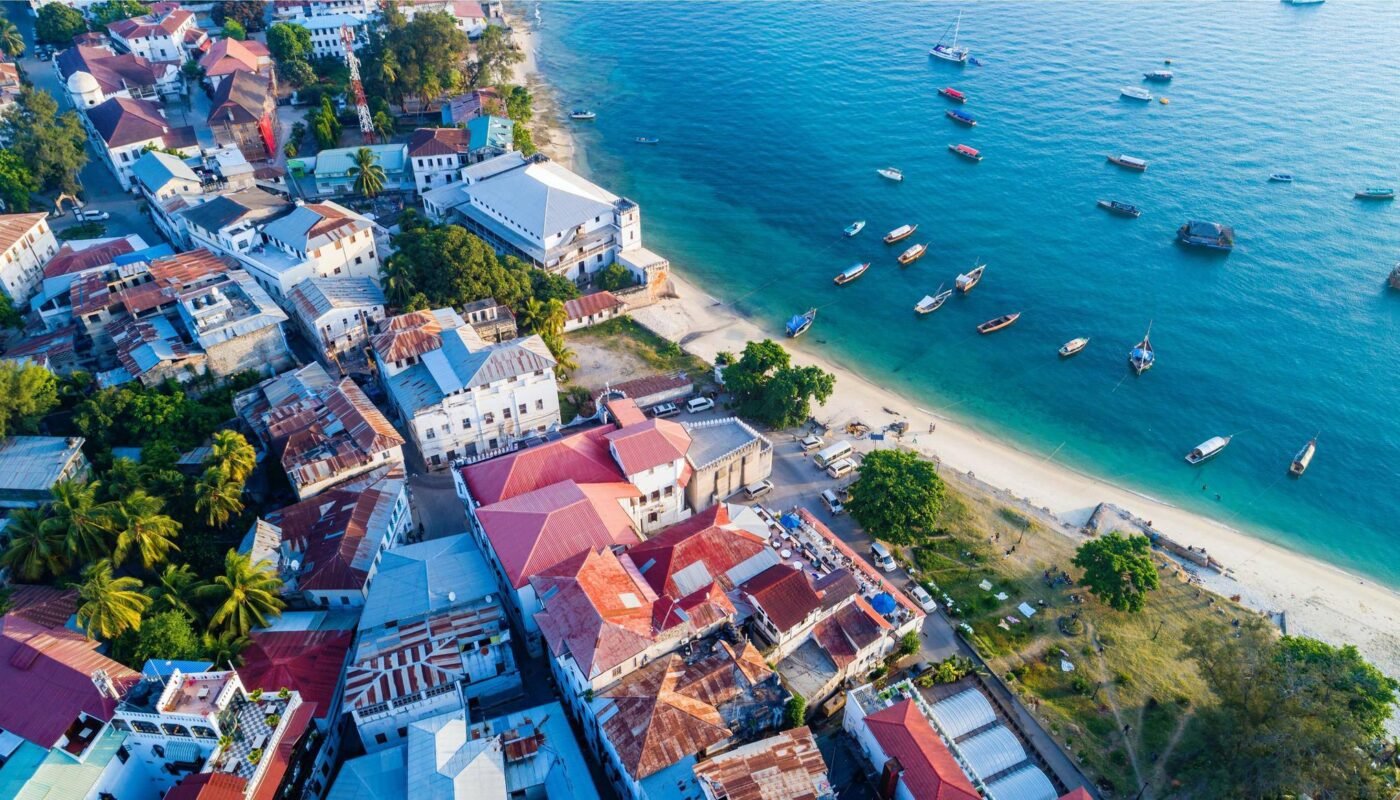Zanzibar, with its picture-perfect beaches, vibrant culture, and rich history, is a dream destination for many travelers. But before packing your bags, you might wonder: is Zanzibar safe? This comprehensive guide will help you understand the safety landscape of Zanzibar, offering practical tips to ensure a secure and enjoyable trip.
1. Introduction to Zanzibar
Zanzibar is a stunning archipelago off the coast of Tanzania, in the Indian Ocean. It comprises several islands, with Unguja (commonly called Zanzibar Island) and Pemba being the main ones. Known for its idyllic beaches and historical sites, Zanzibar attracts tourists from around the globe.
Why Zanzibar?
- Zanzibar’s appeal includes its beautiful coastlines, historic Stone Town, and the warm hospitality of its people. Safety is a key concern for travelers, and understanding the safety measures in place can enhance your travel experience.
2. General Safety Overview
Overall, Zanzibar is a safe destination. The crime rate is relatively low, and the island is generally welcoming to tourists.
Crime Rates
- While petty theft and pickpocketing can occur, especially in crowded areas, violent crimes are rare. Most visitors enjoy a trouble-free stay.
Police Presence
- The Tourist Police are visible in popular areas, offering assistance and enhancing security. Their presence in places like Stone Town and major beaches contributes to a sense of safety.
3. Health and Medical Safety
Health is a critical aspect of traveling. Zanzibar has healthcare facilities, but knowing what to expect can help you stay safe.
Vaccinations and Health Precautions
- It’s advisable to get vaccinations for hepatitis A and B, typhoid, and yellow fever before traveling. Zanzibar is a malaria zone, so using antimalarial medication and mosquito repellent is essential.
Medical Facilities
- Medical services vary in quality. For serious issues, you might need to be transferred to Dar es Salaam or Nairobi. Ensure you have travel insurance that covers medical emergencies.
4. Transportation Safety
Navigating Zanzibar is generally safe, but be aware of specific tips for different modes of transport.
Road Conditions
- Roads can vary from well-paved to rough, especially in rural areas. If driving, consider hiring a local driver familiar with the roads.
Public Transportation
- Dala-dalas (minibuses) and shared taxis are commonly used. They are affordable but can be crowded. Keep an eye on your belongings to avoid petty theft.
Water Transportation
- Ferries and boats are used for island hopping. Choose reputable operators with good safety records for a safe journey.
5. Beach and Water Safety
Zanzibar’s beaches are famous for their beauty. To enjoy them safely, follow these tips.
Swimming Conditions
- Most beaches are safe for swimming, but be cautious of tides and currents, especially in less populated areas. Swim in designated areas and heed local advice.
Marine Life
- While the waters are beautiful, be aware of marine hazards like jellyfish and sea urchins. Protective footwear can help avoid injuries.
Water Sports Safety
- For activities like snorkeling or diving, use reputable tour operators who provide proper equipment and safety instructions.
6. Cultural and Social Safety
Respecting local customs is crucial for a safe and enjoyable experience in Zanzibar.
Dress Code
- Zanzibar is predominantly Muslim. Dress modestly, covering shoulders and knees, especially in non-tourist areas and religious sites.
Respecting Customs
- Avoid public displays of affection and be mindful of local customs. This shows respect for the local culture and helps you blend in more easily.
Alcohol Consumption
- While alcohol is available, it’s best consumed discreetly. Excessive drinking in public can attract unwanted attention.
7. Safety in Stone Town
Stone Town is a highlight of Zanzibar, offering a mix of history and culture. Here’s how to stay safe while exploring.
Navigating the Streets
- Stone Town’s narrow streets can be tricky. Explore during the day and stick to well-lit, populated areas at night.
Handling Money and Valuables
- Avoid displaying large amounts of cash or expensive jewelry. Use a money belt and be cautious with your belongings.
Shopping Safely
- Markets are lively and exciting. Be aware of pickpockets, keep your items secure, and enjoy the bargaining experience.
8. Food and Drink Safety
Trying local cuisine is a must in Zanzibar. To avoid health issues, follow these guidelines.
Street Food
- Choose vendors that appear clean and well-maintained. Opt for freshly cooked foods and avoid items that have been left out for a long time.
Water Safety
- Drink bottled water, as tap water isn’t considered safe. Use bottled water for brushing your teeth as well.
9. Safety During Festivals and Events
Zanzibar hosts several festivals throughout the year. These events are fun but come with their own set of safety considerations.
Crowd Safety
- Large crowds can be overwhelming. Stay alert, keep an eye on your belongings, and have a meeting point if you’re with a group.
Nighttime Safety
- Festivals often run into the night. Stick to well-lit areas, avoid walking alone, and use reputable transport options.
10. Solo Travel Safety
Zanzibar is generally safe for solo travelers, including women. Here are some tips to ensure a smooth experience.
Accommodation
- Choose well-reviewed accommodations in safe areas. Many solo travelers prefer hotels or guesthouses with added security features.
Interacting with Locals
- While locals are generally friendly, trust your instincts. If something feels off, don’t hesitate to leave the situation.
Staying Connected
- Have a working phone with a local SIM card. Share your itinerary with someone back home and check in regularly.
11. Environmental Safety
Enjoy Zanzibar’s natural beauty while being mindful of environmental factors.
Sun Protection
- The sun in Zanzibar can be intense. Use sunscreen, wear a hat, and avoid direct sun exposure during peak hours.
Wildlife Awareness
- Be cautious around wildlife like monkeys and stray dogs. Don’t feed or approach them to avoid potential problems.
Environmental Conservation
- Respect the environment by avoiding littering and not touching coral reefs. Support eco-friendly practices to help preserve Zanzibar’s natural beauty.
12. Handling Emergencies
Even with careful planning, emergencies can arise. Here’s how to handle them effectively.
Emergency Contacts
- Save local emergency numbers, your country’s embassy, and your hotel’s contact information. Know the location of nearby hospitals or clinics.
Travel Insurance
- Ensure you have comprehensive travel insurance covering medical emergencies, theft, and other unexpected events. Understand your policy and how to file a claim.
Language Considerations
- Knowing a few basic phrases in Swahili can be helpful in emergencies. It also helps you connect with locals and may facilitate quicker assistance.
13. The Impact of COVID-19 on Safety in Zanzibar
The COVID-19 pandemic has introduced new safety considerations. Stay informed about the current situation before traveling.
Travel Restrictions
- Check for the latest travel advisories and entry requirements, including any quarantine or vaccination rules.
Health Protocols
- Follow local health guidelines, such as wearing masks and maintaining social distance. Stay updated on any changes in protocols.
Vaccination and Testing
- You may need proof of vaccination or a negative COVID-19 test to enter Zanzibar. Ensure you meet all requirements and carry the necessary documentation.
14. Conclusion: Is Zanzibar Safe?
Zanzibar is a generally safe destination that offers a rich blend of natural beauty, cultural experiences, and warm hospitality. By taking the appropriate precautions and staying informed, you can enjoy a safe and memorable visit.
The island’s safety measures, combined with the friendliness of its residents, make Zanzibar a welcoming place for travelers. Whether you’re exploring historic Stone Town, relaxing on the beach, or venturing into more remote areas, Zanzibar offers a secure environment that enhances your travel experience.
15. Frequently Asked Questions (FAQs)
Q: Is Zanzibar safe for solo female travelers? A: Yes, Zanzibar is generally safe for solo female travelers. Take standard precautions like dressing modestly, staying in reputable accommodations, and avoiding walking alone at night.
Q: What should I do if I encounter a medical emergency in Zanzibar? A: Contact the nearest hospital or clinic. Having travel insurance is crucial for medical emergencies, and knowing local emergency contacts is also important.
Q: Are there any areas in Zanzibar that are unsafe for tourists? A: Most areas are safe, but avoid poorly lit or deserted places, especially at night. Stick to well-known tourist spots and follow local advice.
Q: Can I drink tap water in Zanzibar? A: No, it’s best to drink bottled water as tap water is not safe for consumption. Use bottled water for drinking and brushing your teeth.
Q: What vaccinations do I need before traveling to Zanzibar? A: Vaccinations for hepatitis A and B, typhoid, and yellow fever are recommended. Malaria prevention is also advised.
16. Final Tips for a Safe and Enjoyable Trip to Zanzibar
To ensure a safe and enjoyable trip to Zanzibar:
- Stay Informed: Keep up with local news and travel advisories.
- Respect Local Customs: Understanding and following local norms will enhance your experience.
- Stay Connected: Share your travel plans with someone back home and stay in touch.
- Stay Vigilant: Be aware of your surroundings and follow standard safety practices.
With these tips, Zanzibar promises a memorable and secure travel experience. Enjoy the island’s natural beauty, rich culture, and warm hospitality while staying safe and informed.


